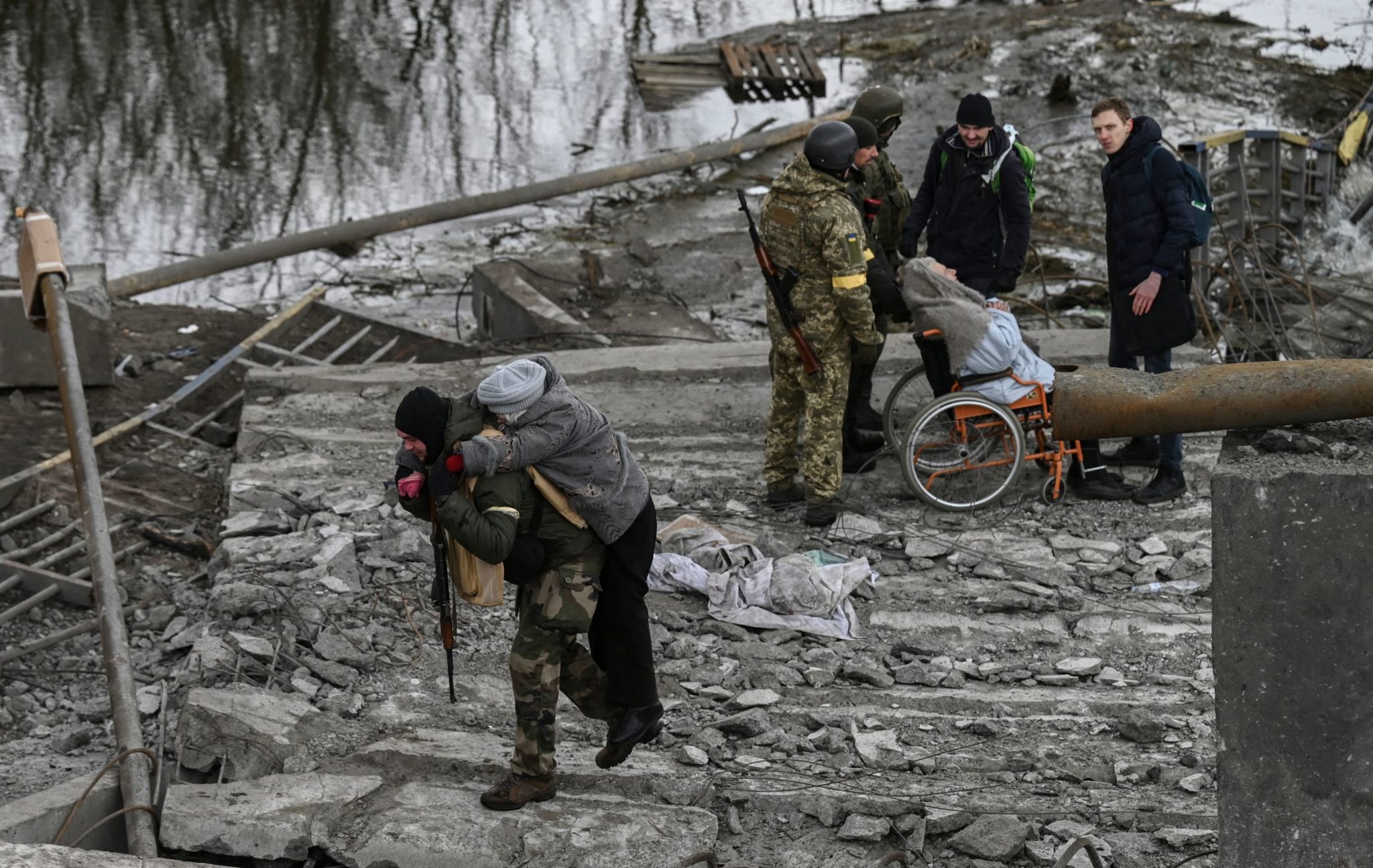Is There a Path to Peace in Ukraine?

Not so long ago, Washington moved decisively to arrange ceasefires with the goal of forestalling disasters. In 1973 when Washington and Moscow were obviously on opposite sides in the war between Israel and Egypt, Washington wasted no time in arranging a ceasefire when it was clear that Israeli forces had recovered from Egypt’s initial attack and were crossing the Suez Canal to counterattack Egyptian forces.
Neither Washington nor Moscow saw any strategic benefit arising from an Israeli invasion of Egypt. Knowing the fragility of Egyptian society, both sides feared the regional consequences of the destabilization—or worse, destruction—of the Egyptian state.
While the war raged in October 1973, Secretary of State Henry Kissinger talked frequently with Soviet Ambassador Anatoly Dobrynin. In a discussion on October 18, 1973, Kissinger declared, “My nightmare is a victory for either side.” Dobrynin responded, “It is not only your nightmare.” It is unclear, but Kissinger and Dobrynin may have worried that if either Egypt or Israel attained a decisive military advantage it would weaken Washington and Moscow’s influence over post-war peace talks.
Of course, Ukraine is not Egypt and Russia is not Israel. The stakes are much higher. Prolonging the violence in Ukraine risks unleashing wider and more destructive regional and global forces.
Unfortunately, like President Lyndon Johnson during the Vietnam War, President Biden is probably disinclined to support a ceasefire, which would open him up to merciless attack from senators from both parties. LBJ talked himself into a box from which he could not escape and it appears that Biden has done the same.
Biden’s strident hate speech toward President Vladimir Putin and the Russian state makes it difficult, if not impossible, to support any ceasefire that leaves Russia in control of anything in Ukraine. The same holds true for an eventual settlement that, as a minimum, recognizes Russia’s controlling national security interest in Eastern Ukraine. As a result, Washington cannot serve as an arbiter in good faith to support its European allies’ pursuit of a solution.
Today, the most that observers of the conflict in Ukraine can say with certainty is that on the tactical level Russian performance has been uneven. This is not surprising for any army that is largely unbloodied. In 1939, this condition was true of the German army in Poland, and in 1991 it was true of U.S. forces during Desert Storm.
However, the unevenness in Russian military performance has no discernible impact on the operational level of war, where Russian forces continue to pursue, encircle, isolate and destroy Ukrainian ground forces. The end of this tragedy is not in doubt. Ukrainian forces in Eastern Ukraine will be annihilated or captured.
Meanwhile, the Washington elite remains committed to any course of action that promises to prolong the conflict and kill more Ukrainians. No one inside the Biden Administration or in the Senate seems remotely interested in crafting a ceasefire, let alone developing the basis for a potential solution that will save lives and halt the destruction.
Europeans must realize that Washington and London, along with their obedient media, will forgive any sin—deception, graft, murder—if it is committed against Moscow. Before it accepts any change in the regional status quo, Washington is prepared to sow chaos in Eastern Europe. This is hardly in Europe’s interest.
Fomenting violence in Ukraine against Russia is dangerous to Europe and the larger world. Stalin fomented the Spanish Civil War believing that the Communist revolution in Spain would spread to France and other European States. Stalin badly miscalculated. Washington is following a similar path in Ukraine in the hope that Washington and its allies can transform Ukraine into an East European version of Afghanistan for Russia. But the notion that Washington profits strategically from inciting further violence in the region against Russia—or from economic sanctions almost guaranteed to produce blowback—is seriously flawed.
Europeans cannot wait for Washington to act. They must take responsibility for their own security and the maintenance of peace and stability on the European continent. The first step is to broker a ceasefire. Either the European Union, the Organization of Security and Cooperation in Europe, or a combination of those states that border Ukraine and Russia in concert with Berlin and Paris could approach Moscow and Kiev with a ceasefire proposal.
Neutral European states like Austria and Finland could be asked to supply peacekeepers. India, a neutral state that enjoys a close relationship with Russia reaching back to India’s independence in 1947, may also be willing to assist, but Europeans must seize the initiative.
One hundred years ago, Europeans placed great faith in President Woodrow Wilson’s principle of national self-determination, but the implementation of the principle during the 1919 Paris Peace Talks demanded a detailed knowledge of Europe that Wilson did not possess. Recognizing his dependence on the expertise of the academics who accompanied him to the Paris Peace talks, Wilson told his team, “Tell me what is right, and I will fight for it.”
Sadly, Wilson, a progressive Democrat, listened to practically no one, even his British and French colleagues. Asked to comment on the progress of the Peace Talks, Britain’s Prime Minister David Lloyd George responded, “What do you do with one man who thinks he’s Napoleon [President Clemenceau of France] and another who thinks he’s Jesus Christ [Woodrow Wilson]?”
Today, the liberal universalism that rejects any values but its own and the neoconservatives who derive much of their thinking from Woodrow Wilson dominate U.S. policymaking. If Europeans do not assert themselves, their interests will be ignored along with Russia’s, and Ukraine will be destroyed.
Douglas Macgregor, Col. (ret.) is a senior fellow with The American Conservative, the former advisor to the Secretary of Defense in the Trump administration, a decorated combat veteran, and the author of five books.